According to a report by ZDNet, RIM is in the process of meeting with core developers at events in Toronto, New York and San Francisco.
Hardware price and performance
Among the details gleaned in the report is that there will be three models, similar to the WiFi-only iPad, with 16, 32 and 64GB capacities. This contradicts the claims of Mobility Insider, which stated RIM would offer a $399 8GB version that could undercut the entry level iPad's price by $100.
The iPad undercutting price rumor was already suspect, given that RIM's own executives had only ever stated that they planned to price the PlayBook starting "under $500," which for a 7 inch screen tablet would only make it comparable to the more than twice as large iPad.
Apart from offering Apple little competition in terms of aggressive pricing, the PlayBook was said to look good up close, with a "very nice glass similar to the iPad. The build quality is better than current Android tablets on the market," the report noted.
The PlayBook reportedly uses a 1GHz dual core ARM Cortex A9 processor, which would suggest a year's leap of progress over last spring's iPad, which uses a 1GHz A4 with a single A8 CPU core. Observations of its speed range from comments that it "looked smooth overall" to Engadget's comment that "it looks pretty slick — though there is some slight animation lag."
Operating system and apps
Performance issues could certainly be attributed to the fact that the PlayBook operating system isn't finished yet. There are also only a few prototypes available for developers to look at. The ZDNet report stated that in New York, there were around 150 developers but only three or four units available.
Worse for developers, RIM isn't offering a PlayBook emulator with a functional web browser yet; the PlayBook itself lacks a functional browser. "This item is no small issue since there are a lot of HTML5 developers in the house," the report noted. RIM's initial plan for PlayBook apps is to leverage web standards, so it plans to get a functional browser emulation environment to developers by early January when it finishes the PlayBook's browser, which based on Torch Mobile, a WebKit implementation that RIM acquired last fall.
Prior to that, the PlayBook can only run Adobe AIR apps created using Flash Builder. Theoretically, these apps should be portable between PlayBook and Android, which also supports an AIR runtime on some new models. However, developers report "AIR apps can be tough to port," and the report also noted that "BlackBerry’s biggest developers are unlikely to use AIR. Those BlackBerry developers are likely to wait until January or February when the BlackBerry OS kit is available. In a nutshell, you’ll have AIR apps early and Java developers will hold back."
The current crop of around 50 apps are all built using AIR. Next year, RIM plans to launch a web-based development platform named WebWorks, similar to Palm's webOS or Google's Chrome OS. Additionally, it also plans to launch a native C/C++ software development kit "for non-Flash apps and Java," with support for "OpenGL 2.0, networking, data storage all native" the report said.
PlayBook & BlackBerry cross polination
It is not clear if RIM plans to bring existing BlackBerry app compatibility to the PlayBook (which would require hosting a Java VM, as the existing BlackBerry OS is Java), but this seems unlikely given the very different experience promised by the PlayBook's iPad-like, albeit smaller, screen compared to the trackball and microbutton keyboards that gave existing BlackBerry devices their name.
When pressed to suggest when the PlayBook's still unfinished new software platform would trickle down into the company's BlackBerry smartphones (something RIM has promised to do at some point in the future), the company's co-CEO Mike Lazaridis stated in an interview that would happen "as soon as I have dual core baseband CPUs" capable of running within smartphones.
However, just this spring Lazaridis claimed that touch-only phones like the iPhone aren’t that popular, and that most of the people buying touchscreen phones were subsequently going back to phones with hardware keyboards, like those that made RIM ‘famous.’
A lot of work, little time
The development efforts RIM has outlined for the next 30 days are nothing short of Herculean. Apple spent a full year working on the original iPhone SDK after its initial launch, despite its being largely based upon existing, tested Cocoa frameworks used in Mac OS X. Essential features such as copy and paste, multitasking, and system wide search were delayed for years to get the basics out first. Apple also spent years developing expertise in its mobile Safari web browser, following years of WebKit development.
Similarly, Microsoft delayed Windows Phone 7 for years longer than planned, and it was "only" refreshing Windows Mobile and building a mobile version of Silverlight, not building a whole new operating system environment from scratch. Microsoft has also long been the top PC web browser vendor, but struggled for years to deliver a reasonably functional mobile browser of its own.
Palm rapidly brought its new webOS to market after a year or two of work, but it was largely overlooked because it couldn't offer the maturity of existing platforms right out of the gate. Since HP's acquisition, Palm's operating system has only made minor progress over many months.
Even Google has delayed its Chrome OS for a year longer than planned, and that product is "just" a web browser hosted by a standard Linux kernel with nearly no exposed operating system services. Google is also indisputably an expert in web browser development.
RIM is essentially working to match the efforts of Palm, Google, Microsoft and Apple all at once, within a few months, while transitioning itself from its familiar territory as the vendor of mobile terminals tethered to an enterprise server infrastructure into an entirely new and unfamiliar mobile PC market, using an OS kernel it just acquired less than a year ago, a browser code base it bought last fall, and developing an entirely new platform it hasn't ever pulled off before as a basic JavaME licensee.
In October, Apple chief executive Steve Jobs dismissed RIM rather quickly in his remarks to analysts, noting that the iPhone 4 "handily beat RIM's 12.1 million Blackberries sold in their last quarter. We've now passed RIM. I don't see them catching up with us in the foreseeable future."
Jobs added, "it will be a challenge for them to create a mobile software platform and convince developers to support a third platform."
 Daniel Eran Dilger
Daniel Eran Dilger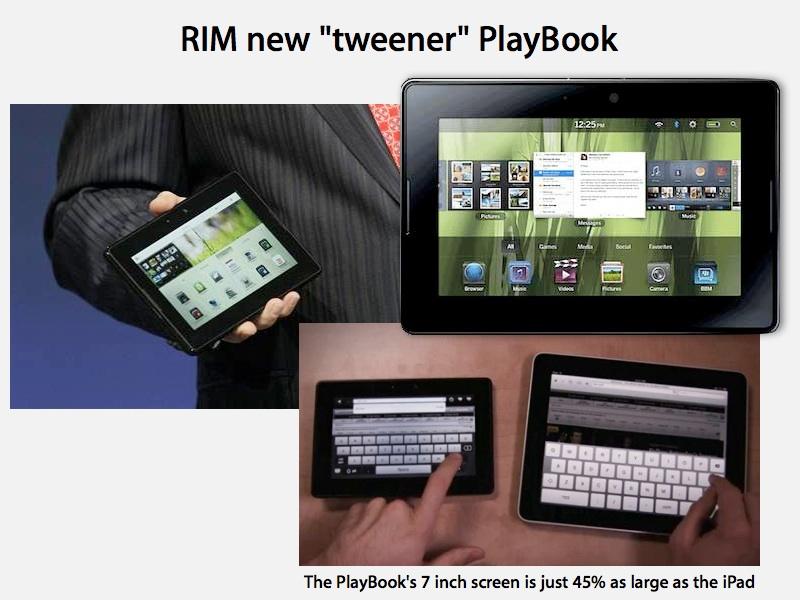

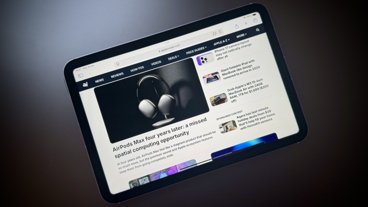

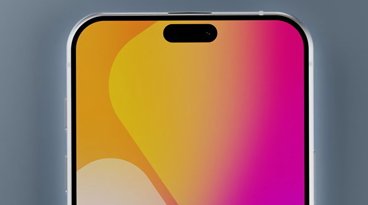

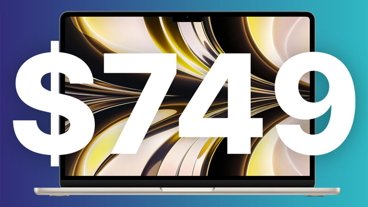

-m.jpg)





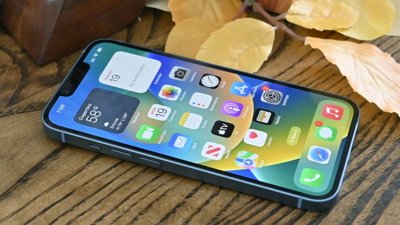
 William Gallagher
William Gallagher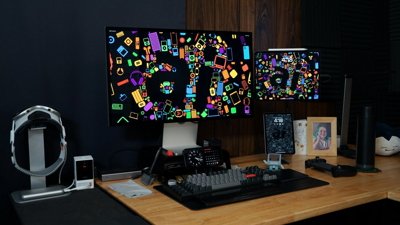
 Wesley Hilliard
Wesley Hilliard
 Christine McKee
Christine McKee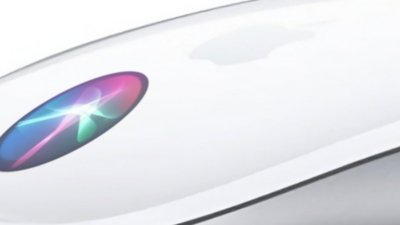
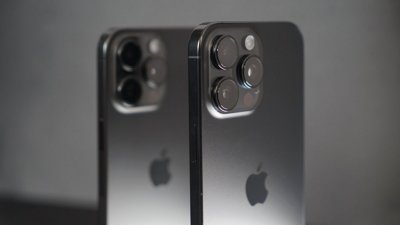
 Andrew Orr
Andrew Orr
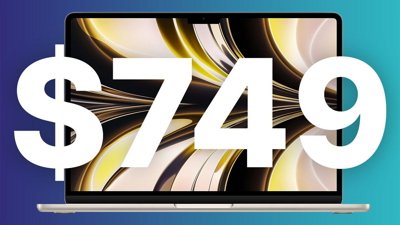

 Andrew O'Hara
Andrew O'Hara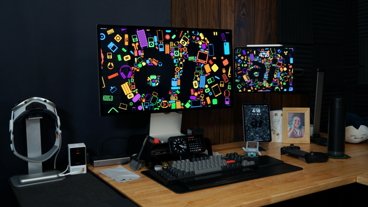
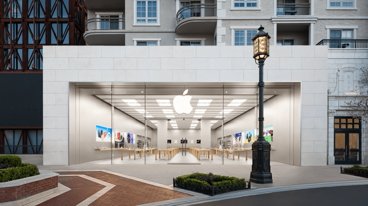




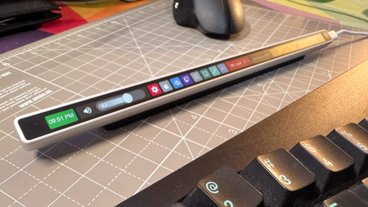

88 Comments
The phrase 'biting off more than one can chew' springs to mind where RIM is concerned.
I'm thinking that maybe Palm is the real point of comparison for RIM going forward. They managed to get a well received and by all reports pleasant to use OS out the door, but broke compatibility with their installed user base. Thus, the lack of apps and the comparatively lackluster developer environment couldn't generate enough buzz and goodwill to break through new platform inertia.
MS, of course, has done something similar with WP7, but MS has a lot more going on (and many more revenue streams) than just a mobile operating system and can use that to help prop things up until if and when their new phone OS gets some critical mass.
So if RIM has to basically start over with a new OS, then they have to pretty much start over in the marketplace. Sure, there's some product loyalty and name recognition, but the fabled BB installed user base lock-in behemoth pretty much counts for nothing. An army of Palm users didn't do the Pre much good, we'll see if QNX phones can do any better.
The PlayBook reportedly uses a 1GHz dual core ARM Cortex A9 processor, which would suggest a year's leap of progress over last spring's iPad, which uses a 1GHz A4 with a single A8 CPU core. Observations of its speed range from comments that it "looked smooth overall" to Engadget's comment that "it looks pretty slick -- though there is some slight animation lag."
The need to play the hardware-specs trump card is becoming antiquated. While I'm sure faster hardware can make badly-written software seem to run better, in the end it comes down to optimization and taking to time to polish and do everything that one can do to get everything running fluidly. Where mobile devices are concerned, Apple has proved to me that it is not important the Ghz speed, or how many cores a CPU has, only that engineers have taken the time to get the two aspects (hardware and software) to complement each other.
RIM at least has a better shot than the other players. Like Apple, they appear to be in control of both the hardware and software. The disadvantage they have (IMHO) is that their software support is lacking to say the least, and they certainly do not have the software engineering talent that is comparable to what Apple has. This is where I think RIM will fail.
It's difficult to try matching Apple's offerings at the same price points due to Apple's ability to control the economies-of-scale. They have so much clout in obtaining all the components at the best prices. It leaves everyone else picking up the breadcrumbs that are left over.
But what took Palm years to do, RIM is trying to do it in months.
Wow... looks like RIM is really behind on this project. They don't really seem to have the ecosystem in place to make 1.0 viable, and it might take as long as 3.0 to really get it moving. (...if they have that long!)
I do hope Apple hurries up and makes my iPad obsolete with a newer version. Yes, I want higher resolution, faster processor, and a Gig of RAM. Camera would be nice as well... or at least a standard way to interact with cameras directly.